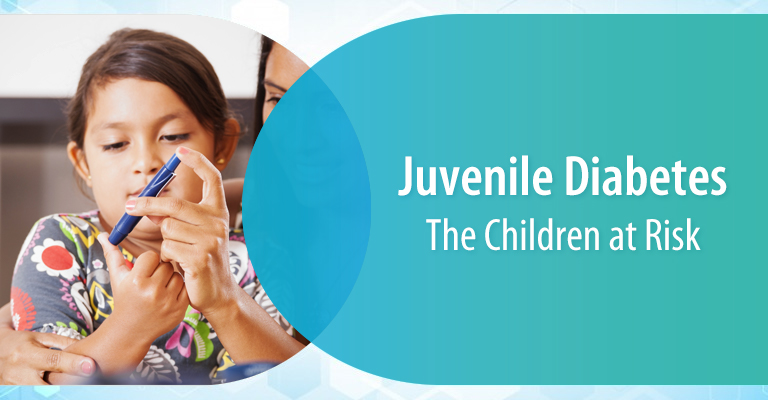Juvenile diabetes was the term earlier used to describe Type 1 diabetes in children, a condition in which the child’s pancreas fails to produce insulin. Without this critical hormone, sugar cannot travel from the blood into the cells, leading to high blood sugar levels. The child will need lifelong insulin injections or an insulin pump to substitute the missing insulin and keep blood glucose levels under control.
Although there is no cure for Type 1 diabetes in children, it can be managed and a good quality of life provided to them with all the progress made in blood sugar monitoring and insulin delivery in recent times. In the past decade or so, there has been a marked spike in the incidence of Type 1 diabetes in children. Early detection and treatment is the key to better life.
Common symptoms of Type 1 diabetes in children
- Feeling thirsty all the time
- Frequent urination, sometimes bed-wetting as well
- Sense of unusual hunger
- Loss of weight
- Chronic fatigue
- Irritability or changes in behaviour patterns
- Fruity-smelling breath
What are the known risk factors?
The known risk factors for Type 1 diabetes in children include:
- Family history: A child is at increased risk if a parent or a sibling has Type 1 diabetes.
- Genetics: Certain gene types indicate an increased risk of Type 1 diabetes.
- Viruses: If a child is exposed to some viruses, it could trigger autoimmune destruction of islet cells in the pancreas.
Complications of Type 1 diabetes in children
Type 1 diabetes has the potential to damage some of the child’s key organs. Keeping the blood glucose count in check can cut the risk of complications manifold. Some common complications are:
Cardiovascular diseases: Type 1 diabetes in children increases risk of arterial stenosis, hypertension, heart issues and even stroke in adult life.
Damage to nerves: Undigested sugar in the blood stream can lead to nerve damage over time, causing tingling, numbness, burning or pain.
Renal failure: Type 1 diabetes can cause damage to the minute blood vessel clusters responsible for filtering waste from the child’s blood.
Eye damage: The blood vessels of the retina could be damaged by high blood sugar, causing vision problems.
Brittle bones: Diabetes can also affect bone mineral density, thus putting the child at a heightened risk of osteoporosis later in life.
One must also guard against emergencies like:
Ketoacidosis: This is a serious condition in which blood sugar levels are very high and the body starts producing ketones (chemicals made in the liver). The child needs to be hospitalized immediately and treated in intensive care. Without emergency treatment, the child could slip into a diabetic coma because of brain swelling from the high blood sugar levels.
Low blood sugar or hypoglycemia: At times, blood glucose can dip to dangerously low levels, which could be due to an insulin reaction.
How are children with Type 1 diabetes treated?
These children require a daily dose of insulin injections to keep the blood glucose level within acceptable limits. Insulin can also be released through an insulin pump.
Other measures include:
- Right balance of foods to manage blood glucose levels, including meal timings and calorie counts
- Exercising to whittle down blood sugar count
- Regular blood tests for monitoring blood-glucose levels
- Frequent urine testing to keep a tab on ketone levels
True, rates of Type 1 diabetes and to some extent event Type 2 diabetes are on a sharp incline among children and adolescents. However, parents can take heart in the fact that symptoms of child and adolescent diabetes can be managed reasonably well by a combination of healthy diet, regular exercise, and medications, and these youngsters can grow up to lead full and healthy lives.
Our experienced Child Specialists are well equipped to handle this condition in children and can help in diagnosing, treating and managing the condition and emergencies related to it at all times.



